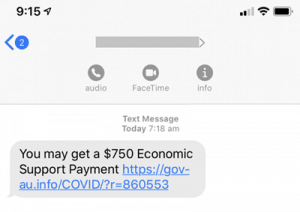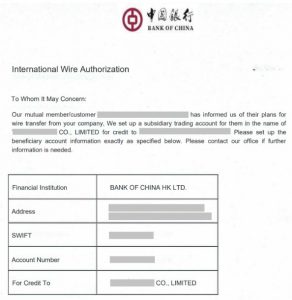Since the outbreak of the coronavirus, the Australian Government’s Scamwatch has received over a thousand coronavirus-related scam reports. The latest Australian coronavirus scams include phishing for personal information, online shopping scams, and superannuation scams.
It’s crucial that Australian businesses and consumers remain cautious and alert to online scams. Australian businesses should also ensure they have an effective cyber security strategy and hardware security policies such as a laptop security policy.
Businesses also need to educate their staff on why good cyber security is a positive for business, how to protect your business from ransomware, and how to prevent data breaches.
Online scammers work in a variety of ways including contacting you via email, text or social media. They may also set up websites that look real, or impersonate government, businesses or even friends. They may also collect information about you before contacting you so that when they make contact it seems more convincing.
Never ever provide personal, banking or superannuation details via email or to strangers in person.
Latest Australian coronavirus scams
Phishing – Government impersonation scams
Scammers are pretending to be government agencies providing information on COVID-19 through text messages and emails ‘phishing’ for your information.
These contain malicious links and attachments designed to steal your personal and financial information.
 Government payment and financial assistance scams
Government payment and financial assistance scams
Scammers are also pretending to be Government agencies and other entities offering to help you with applications for financial assistance or payments for staying home.
Phishing – Other impersonation scams
 Scammers are pretending to be from real and well known businesses such as banks, travel agents, insurance providers and telco companies, and using various excuses around COVID-19 to:
Scammers are pretending to be from real and well known businesses such as banks, travel agents, insurance providers and telco companies, and using various excuses around COVID-19 to:
- ask for your personal and financial information
- lure you into opening malicious links or attachments
- gain remote access to your computer
- seek payment for a fake service or something you did not purchase.
 Scams specifically targeting businesses
Scams specifically targeting businesses
Scammers are using COVID-19 in business email compromise scams by pretending to be a supplier or business you usually deal with.
Scammers are using COVID-19 as an excuse to divert your usual account payments to a different bank account. Your payment goes to the scammer instead of the real business.
Businesses can also sign up to the ACCC’s Small Business Information Network to receive emails about new or updated resources, enforcement action, changes to Australia’s competition and consumer laws, events, surveys and scams relevant to the small business sector.
Tips to protect yourself from these types of scams:
- Don’t click on hyperlinks in text messages, social media messages or emails, even if they appear to come from a trusted source.
- Never respond to unsolicited messages and calls that ask for personal or financial details, even if they claim to be from a reputable organisation or government authority — just press delete or hang up.
- Never provide a stranger remote access to your computer, even if they claim to be from a telco company such as Telstra or the NBN Co.
- To verify the legitimacy of a contact, find them through an independent source such as a phone book, past bill or online search.
- Go directly to the website through your browser. For example, to reach the MyGov website type ‘my.gov.au’ into your browser yourself.
- Verify any request to change bank details by contacting the supplier directly using trusted contact details you have previously used.
- Consider a multi-person approval process for transactions over a certain dollar amount, with processes in place to ensure the business billing you is the one you normally deal with.
- Keep the security on your network and devices up-to-date, and have a good firewall to protect your data.
- If you have been a victim of a scam, you can get help via Scamwatch.
Contact Surety IT today for expert IT cyber security advice and assistance for your business.
More information
Australian Government Business (business.gov.au) – Coronavirus information and support for business
How to Protect your Business from Ransomware
What to include in a Laptop Security Policy





